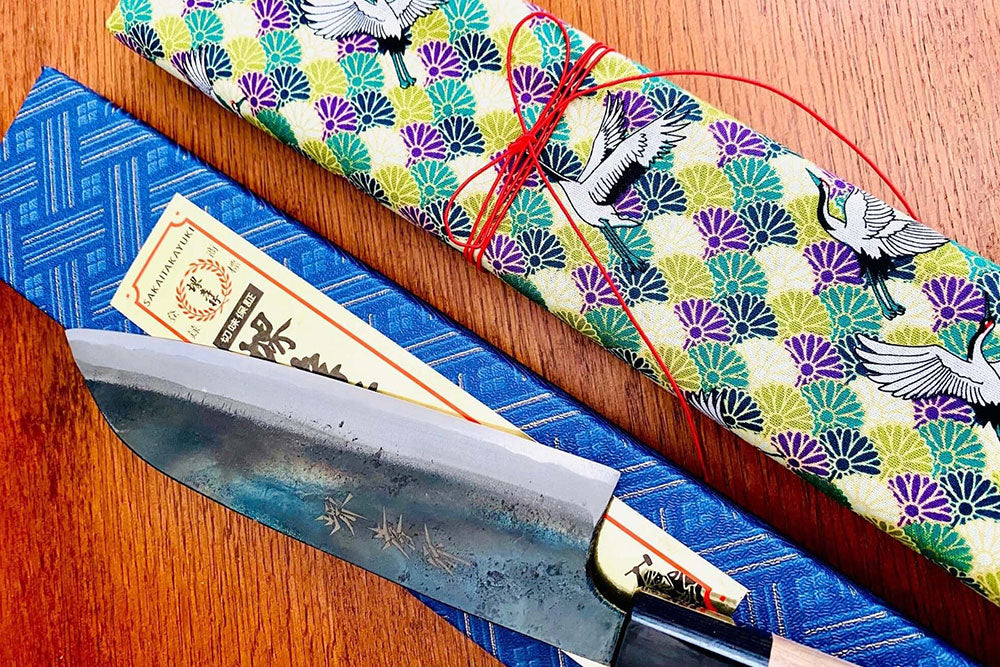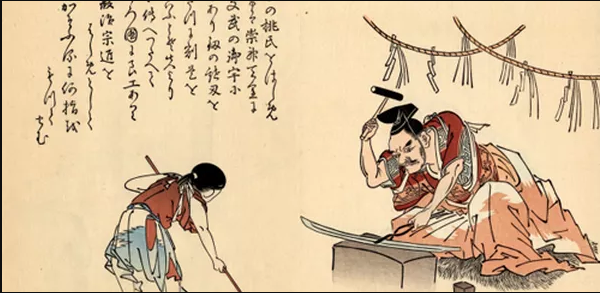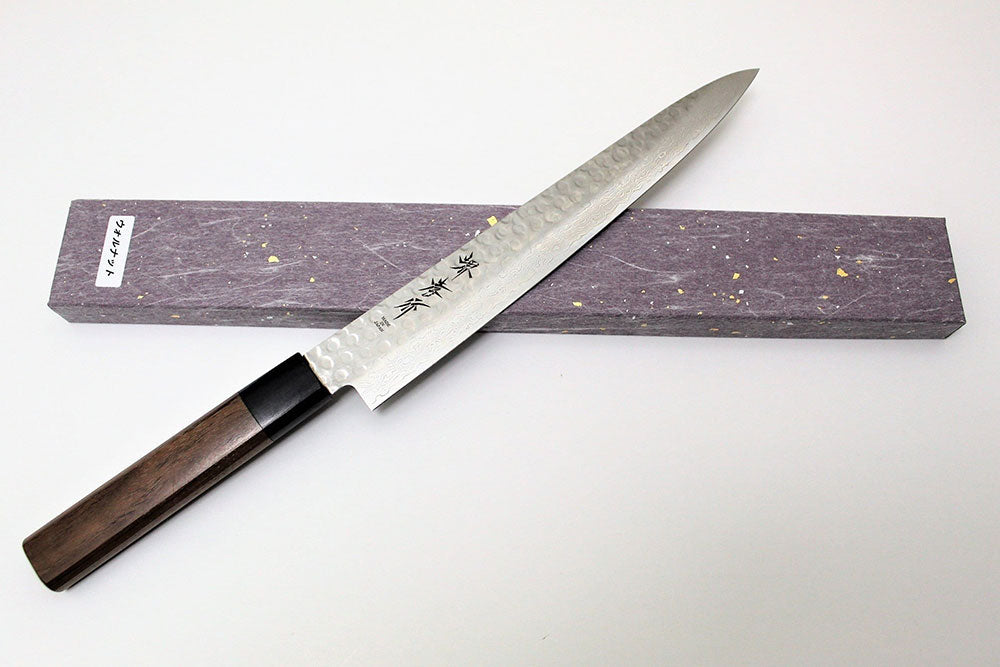
Japanese Knife Gift Etiquette: What You Need To Know
Looking to give someone a Japanese knife as a gift? You’ve got great taste—these blades are precision instruments made by masters. But before you go ahead and hand over that sleek, sharp beauty, there's something you should know: knives in Japan aren’t just tools; they're serious business. The etiquette when giving a knife as a gift isn’t just about picking the right one. You’ll want to steer clear of any accidental bad luck or awkward silences at the dinner table. So, let’s slice through the confusion and learn the proper way to give a knife like a pro.
Why Is Gifting Knives Considered Unusual?
You may have heard that gifting a knife is a big no-no. And while it’s not exactly taboo, giving a knife in Japan carries a whole lot of symbolism. Here’s the deal: knives in Japanese culture represent cutting—specifically, cutting ties. That means giving a knife can unintentionally imply you’re looking to sever a relationship. Imagine handing over a beautifully crafted knife to your best friend and saying, "I thought we should cut things off." It could totally ruin the vibe.
Now, don’t freak out. There’s a way to turn this knife drama into a gesture of respect. We’ll get to that. But first, let’s explore the deeper meaning behind these blades.
The Symbolism Behind Japanese Knives
Japanese knives are more than just sharp metal. They are a fusion of centuries of craftsmanship, culture, and pride. Giving a Japanese knife signifies you respect the recipient’s skills—whether they’re a master chef or just really good at slicing tomatoes for their sandwiches. So, when you gift a Japanese knife, you’re actually saying, "I see you. I appreciate you." It's a sign of respect, but only if you do it right.
If you’re ready to gift a knife, the intention should be to symbolize admiration and thoughtfulness. But before you hand over that sharp beauty, consider how you present it.
The Coin Trick: Buying the Knife
Here’s where things get interesting. In Japan, when you give a knife, it’s traditional to include a small coin with it. The idea behind the coin is simple: by giving a coin, you're allowing the recipient to return the coin, thereby “buying” the knife, which cancels out any ill intentions the knife might have (i.e., severing relationships). So, instead of saying, "I want to cut ties," you’re saying, "Let’s trade this knife for a fresh start."
Now, I’m not saying you need to hand over your spare quarters, but you might want to slip a coin into the box as a nice touch. It’s a small but thoughtful gesture that shows you know the cultural etiquette and want to do things the right way. Imagine the recipient’s face when they find that coin—now that’s a memorable gift.
How to Present the Knife: Handle First, People!
Now that you have the knife and the coin (if you’re feeling fancy), let’s talk about how to present it. Here’s a little secret: never hand over a knife by the blade. In Japan, this is the equivalent of offering someone your hand for a handshake but with a flaming torch instead of a warm smile. Not ideal, right?
You want to offer the knife with the handle facing the recipient. This shows respect and avoids any risk of cutting someone’s personal space (literally and metaphorically). Think of it like offering a handshake, but instead of your hand, you're handing over the handle—safe, polite, and much less likely to end in a blood feud.
When Should You Gift a Knife?
When’s the best time to give a knife? Well, don’t go gifting one just because someone had a bad day or because you’re feeling generous after binging a cooking show. Knives are usually reserved for big moments. Think weddings, promotions, moving to a new home, anniversaries, or major milestones. You’re not going to give your buddy a knife just because they did a good job at a dinner party—unless, of course, you’re trying to make them think you want to cut ties.
In Japan, knives are given during moments of achievement, skill, or respect. So, gifting a Japanese knife for something like a promotion at work? Absolutely. Gifting one for a "Tuesday"? Maybe not so much. Keep it classy.
What Knife to Choose: For the Casual Cook or the Kitchen Pro?
Here’s where things get tricky again: not all knives are created equal. It’s important to pick a knife that suits the recipient’s skill level. You wouldn’t give a sushi chef a beginner’s knife (unless you hate them, in which case, go ahead). Likewise, don’t give your cousin who can barely chop onions a high-end, handcrafted Santoku.
If the recipient is new to cooking, a general-purpose knife like a Gyuto or a Santoku will work perfectly. If you’re gifting a knife to a seasoned chef, consider something a bit more specialized—like a Sujihiki or Yanagiba. These are precision tools designed for specific tasks. They say, "I get you and your craft."
The Art of the Presentation: Packaging Is Everything
We’re almost done here, but we can’t overlook this. When it comes to gifting a knife, the presentation is half the battle. A Japanese knife is a work of art, and it should be treated as such. Many high-quality knives come in stunning wooden boxes, and it’s important to keep that packaging intact. The packaging adds a touch of sophistication and respect to your gift. Don’t ruin it by shoving the knife into a gift bag and calling it a day.
Remember, your recipient will appreciate the effort you put into making the gift as special as the blade itself. Think of it like wrapping a present for your grandma—fancy paper, a nice bow, and no last-minute crumpled wrapping.
When in Doubt, Add a Note
Finally, if you’re worried about the cultural implications of gifting a knife, consider including a thoughtful note. A handwritten note explaining why you’re giving the knife can go a long way in putting the recipient at ease. Plus, it gives you a chance to let them know how much you value them without it being too awkward. You can say, "I thought this knife would help you perfect your sushi rolls," or "Here’s something to help you with your culinary artistry."
A personal note goes a long way and helps clarify any confusion over the gift’s meaning.
Hasu-Seizo: Expertly Curated Japanese Knives for Every Skill Level
At Hasu-Seizo, we’ve mastered the art of finding the perfect blade for every chef, whether they’re just starting out or already seasoned pros. From handcrafted Sakai Takayuki knives to beautifully made Aogami Super blades, our collection of artisan Japanese knives is sure to impress. Plus, with FREE SHIPPING on U.S. orders over $150, there’s no reason to wait.
Looking for a special gift? Check out our curated knife gifts and explore expertly selected knives that will make any kitchen enthusiast smile. Join our Japanese gift exchange loyalty program to earn rewards on future purchases. At Hasu-Seizo, we don’t just sell knives—we offer a piece of tradition, craftsmanship, and a whole lot of joy. Happy shopping!


